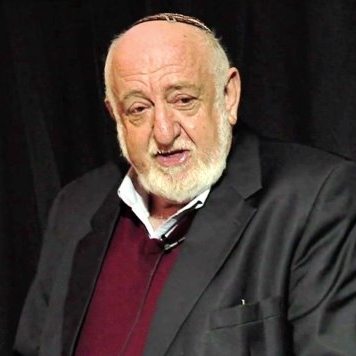
News

From peoplehood to power
HOWARD SACKSTEIN
Infeld, President Emeritus of the Hillel student campus movement and one of the most dynamic Jewish educationalists alive, tells of an experiment conducted around the world. Jewish students are told apple is to orange and banana, pants is to shirt and jacket, Jew is to (blank) and (blank). Jewish students are required to fill in the blanks.
Answers to this simple question vary greatly depending on geography and understanding. In North America, students generally answer Jew is to Christian and Muslim. For them, Judaism is a religion. But how then can you be an atheist Jew or a Jew who practices another religion?
In Israel, students answer Jew is to Arab and French or British, for them Judaism is a nationality or more accurately a mix between nationality and ethnicity. But how then can you be a South African Jew or an American Jew. How can you be a Christian or Muslim Israeli? How can you be an ethnicity if your ethnicity is made up of people of different colours, shades and cultural identities?
In Russia today, Jewish students answer the same question, Jew is to Russian. They don’t see themselves as Russian, maybe because of the old Soviet classification system, which designated Jews as a separate ethnicity apart from other Russians. Says Infeld, Jews who intermarry tell him that they have married a Russian. The fact that they and their families have lived in Russia for hundreds of years has still not made them Russian.
In South America, most Jewish students speak fluent Hebrew, but they are unable to recite any of the Jewish prayers. For them Judaism is about language and culture.
These are some of the struggles surrounding the enigma of how to define ourselves. If we are a religion, the holders of truth, then we should be sending missionaries into Africa to convert people, says Infeld, not sending Chabad to South Africa to give us whisky. If we are a religion, why should we be entitled to a state? If we are a religion, we should have a Vatican, but no Catholic makes aliya to the Vatican.
If we are a nation, as the Israelis believe, why are there Jews in Cape Town?
And so, Infeld searches for a definition that best describes the sui generis nature of us, as a people. Until about 250 years ago, we described ourselves as ama, a people, a family, bnei Yisrael, the children of Israel. Says Infeld, we are a people, mishpocha, a family. One which you are either born into or adopted into.
The struggle in the modern era, says Infeld, is to be unified as a people without being uniform. Our mission and the mission of Jewish leadership must be the renaissance of the Jewish people.
Infeld says that for millennia, we have lived amongst people who hated us. Today, in many parts of the world, we must now learn to live with people who love us. This is an even greater challenge.
We need to define our new common mission as a Jewish people. We had a mission to build Israel, to free Soviet Jews, today we appear to be lost without a new common cause. And, our mission must lie in the direction of G-d, for it was G-d who gave us the mission to make all of the people of this earth blessed by our presence.
But says Infeld, the greatest challenge today is the paradox of power. Those who have no power go like sheep, but those who attain power need to learn how to use it wisely.
Aubrey Infeld was educated in the first intake into King David Schools in 1948. In the 70 years that followed, Avraham has become one of the wisest counsellors of the Jewish people. He boasts that he is one of the few people to receive an honorary doctorate without having written a book or a cheque.
To remedy that situation, Infeld has now penned a book of his thoughts titled A Passion for a People.
- Infeld was a guest of the Jewish Literary Festival in Cape Town. His book is a compulsory read for any Jew in the modern era.




